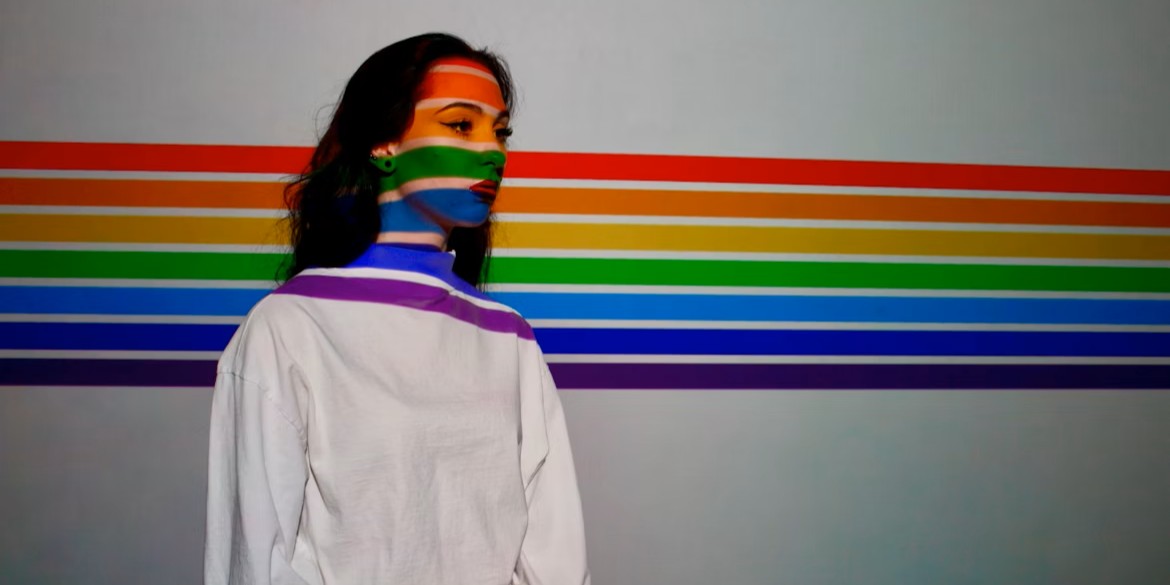Oakland’s Telegraph Avenue pulsed with energy on the evening of September 5, 2025, as thousands of people gathered for the latest edition of Oakland First Fridays, the city’s signature community street festival. This month’s celebration, titled “Express Yourself: Oakland LGBTQ+ Art and Inclusivity Celebration,” transformed the Koreatown Northgate (KONO) District into a vibrant open-air gallery and stage, where music, food, art, and community pride converged.
Running from 5:00 p.m. to 9:30 p.m., the festival spanned several blocks between West Grand Avenue and 27th Street, bringing together artists, vendors, musicians, and community organizations. Attendees roamed freely among live performances, colorful murals, food trucks, and interactive installations. For many, the evening was more than just entertainment; it was a public affirmation of Oakland’s commitment to inclusivity, creativity, and cultural exchange.
This September’s theme placed LGBTQ+ artistry at the center, giving queer artists and performers the spotlight in a festival that has long served as a platform for underrepresented voices. Murals highlighted stories of resilience and identity, while dance and spoken word performances drew crowds who cheered in solidarity. In an era where debates about visibility and representation remain pressing, the event was a timely reminder of Oakland’s longstanding role as a hub for progressive expression.
First Fridays has become a cultural institution since its beginnings in 2006, when artists and businesses began hosting small, grassroots gatherings in the KONO District. The event quickly grew in popularity, evolving into a full-fledged festival that now attracts up to 30,000 attendees each month. In 2013, management shifted to the Koreatown Northgate Community Benefit District, which has since overseen the festival’s growth into a multifaceted community showcase. Each edition highlights a different theme—earlier this year, March focused on women’s contributions to art and culture, while June celebrated Black identity and excellence.
Organizers say the festival is about more than showcasing art and music. It has also become a crucial driver of local economic activity, providing exposure for small businesses, food vendors, and independent artists who depend on such events to reach broader audiences. Pop-up shops lined Telegraph Avenue with handmade jewelry, vintage fashion, and artisan crafts, while food stalls offered everything from traditional Mexican street tacos to vegan fusion dishes. For many vendors, the monthly event is a lifeline that helps sustain their work in Oakland’s competitive cultural economy.
The festival’s nonprofit arm also plays a vital role in community development. Oakland First Fridays funds artist incubation programs, youth mentorship initiatives, and civic engagement campaigns. These efforts reflect the organizers’ broader vision: using the arts not only as a form of entertainment but also as a tool for empowerment, education, and neighborhood pride. For longtime residents of Oakland, the event represents both continuity and evolution. It has weathered funding challenges, security concerns, and even the pauses forced by the pandemic, but it continues to return stronger, backed by new partnerships and grassroots support.
On September 5, the message of “Express Yourself” resonated deeply with attendees. Many festivalgoers described the atmosphere as both joyful and restorative. For some, it was their first time attending, while others noted they have been regulars for years. A local resident summed it up by saying, “First Fridays isn’t just a party—it’s about Oakland showing up for itself, for its people, and for the voices that need to be heard.”
The festival also stood out for its family-friendly approach. Alongside the dance and music stages, children engaged in art-making workshops, painting murals and participating in interactive installations that encouraged creativity and collaboration. This multi-generational participation underscored the event’s role in fostering a sense of shared identity across Oakland’s diverse neighborhoods.
The success of the September festival highlighted the resilience of Oakland’s cultural scene in a year marked by both challenges and renewal. After skipping several months earlier in 2025 to focus on fundraising and strengthening partnerships, First Fridays returned with renewed vigor, proving its importance as both a community anchor and a showcase for the city’s diversity. Organizers say they plan to continue building on this momentum, with future themes that will address issues ranging from environmental sustainability to immigrant heritage.
As night fell and the streets gradually cleared, the echoes of live music and laughter lingered in the air. For Oakland, the September edition of First Fridays was not simply an event but a statement: that art and community remain inseparable, and that celebrating diversity is central to the city’s identity. With its ability to draw tens of thousands of residents and visitors into a shared space of joy and creativity, the festival remains one of the most powerful cultural gatherings in the Bay Area.
Read Also: https://socaljournal.com/la-pride-2025-celebrates-55-years-of-lgbtq-advocacy/

